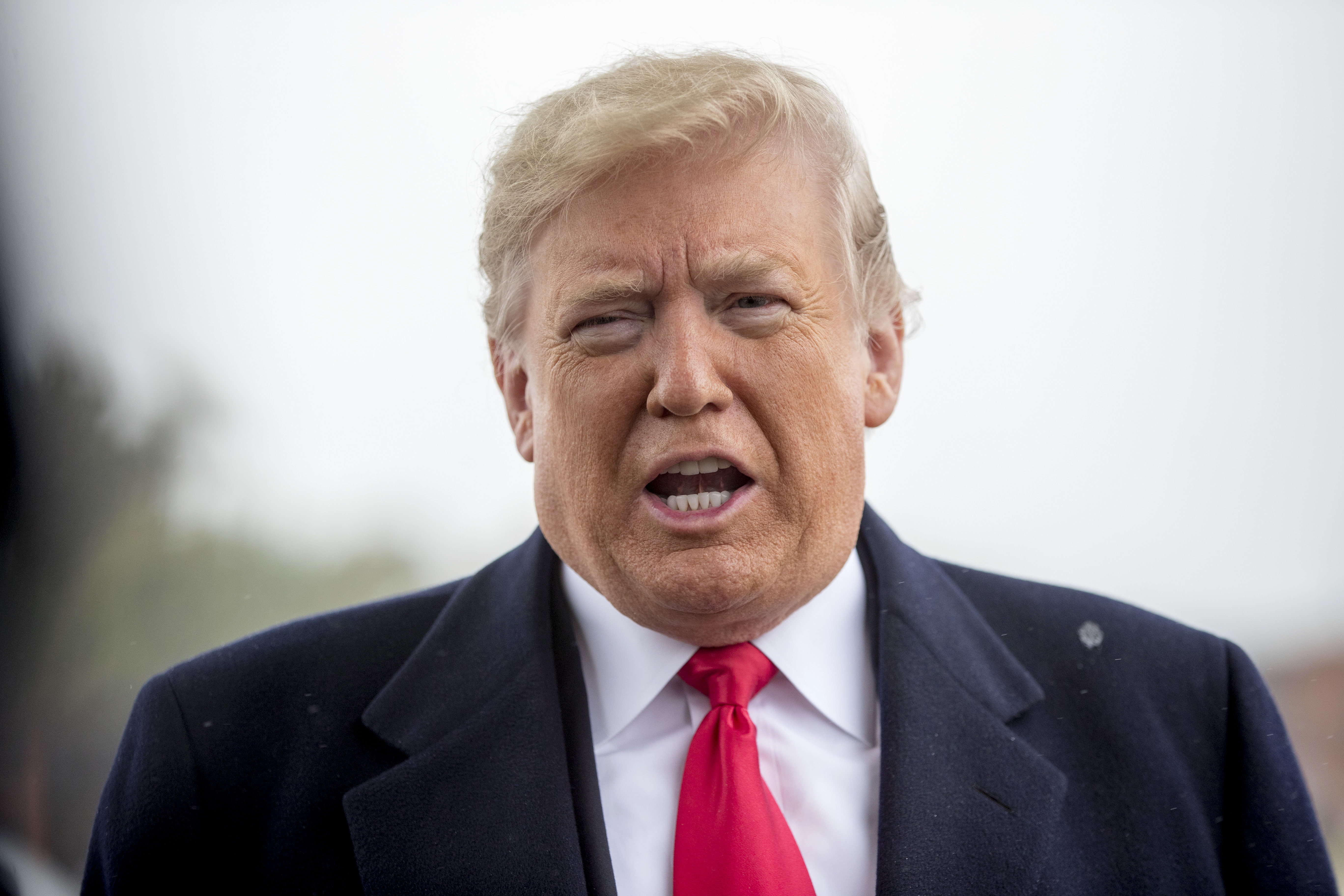
President Donald Trump wants to end birthright citizenship via an executive order. But according to BYU Law professor Frederick M. Gedicks, “virtually everyone” agrees he can’t.
In an interview with “Axios on HBO,” Trump announced he has discussed altering section one of the 14th Amendment — commonly known as the birthright citizenship clause — with an executive order, rather than a constitutional amendment.
“It was always told to me that you needed a constitutional amendment. Guess what? You don’t,” Trump said. “It’s in the process. It’ll happen with an executive order.”
Gedicks said Trump’s claim is a “fringe theory,” and any attempt to issue an executive order ending birthright citizenship would be done on “flimsy authority.”
“The president always has to deal with serious problems and disagreements about what the president can or can’t do,” Geddicks said. “It’s been a long time since a president has decided to issue an order that virtually everyone agrees he doesn’t have the power to issue just because he thinks he can.”
Birthright citizenship is facilitated through the 14th Amendment’s first section, which states, “All persons born or naturalized in the United States, and subject to the jurisdiction thereof, are citizens of the United States and of the State wherein they reside.”
The announcement was met with support from Sen. Lindsey Graham, R-South Carolina, who announced intentions to introduce a bill to end birthright citizenship. Trump’s announcement was also met with opposition from House Speaker Paul Ryan, R-Wisconsin, who said the president “cannot end birthright citizenship with an executive order,” according to CNN.
“As a conservative, I’m a believer in following the plain text of the Constitution, and I think in this case the 14th Amendment is pretty clear,” Ryan said in an interview with Kentucky radio station WVLK.
Utah politicians and candidates also rebuffed Trump’s statement. Reps. Mia Love and John Curtis, R-Utah, both opposed the president’s claims, according to The Salt Lake Tribune. Love said the executive branch doesn’t have the power to change laws unilaterally and said she opposes any administration that seeks to do so.
In an emailed statement to The Daily Universe, Curtis said birthright citizenship can only be altered by Congress’ actions, rather than by executive order.
“As a firm believer in our constitutional form of government and the separation of powers, the president cannot unilaterally alter the Constitution,” he said. “Congress must come together to solve our nation’s immigration challenges and that is why I voted to advance several immigration reform bills earlier this year — Utahns and the American people expect Congress to get this done.”
Gedicks also said while Congress wouldn’t have the power to amend the 14th Amendment, it could potentially reinterpret its wording to exclude undocumented immigrants.
Salt Lake County Councilwoman and U.S. Senate candidate Jenny Wilson also said in an emailed statement to The Daily Universe that Trump rejects the Constitution by sidestepping Congress.
“We are a nation built on immigrants’ desire to provide a better life for their children and future generations. With actions like this, the president not only rejects that historical reality, he rejects the very text of our Constitution,” Wilson said. “Consider this a reminder to get out and vote for candidates who refuse to apologize or carry water for this administration.”
Gedicks said birthright citizenship is — and always has been — core to America’s growth and diversity.
“In the United States, being born here makes you American. It enables us to accept and treat as equals people who haven’t been here for multiple generations,” he said. “One generation is enough to make you a true American, and we owe much of that attitude to the citizenship clause.”
Gedicks also said the president doesn’t have any power to alter or reinterpret the Constitution’s wording and never has. Any attempt to do so would likely be frozen by the justice system.
“If he were to do that, lawsuits would be filed almost immediately, and courts would certainly file injunctions prohibiting the president and all federal agencies from enforcing that executive order,” Gedicks said.
Following these injunctions, the case would work its way through the justice system to the Supreme Court, which would likely side against the president despite a conservative majority, according to Gedicks.
“Even a very conservative Supreme Court is unlikely to read the text of the citizenship clause to give the president that kind of power,” he said.
Gedicks also said any arguments in reinterpreting the phrase “subject to the jurisdiction thereof” have been settled, leaving little room for an interpretation that would nullify birthright citizenship — a conclusion shared by political scholars, according to Gedicks and Utah Sen. Mike Lee.
Conn Carroll, Lee’s spokesman, said in an email to The Daily Universe that Lee supports Congress’ power to interpret the wording of the Constitution but said the executive branch cannot redefine birthright citizenship through executive order.
“Sen. Lee does believe Congress has the power to determine what it means to be born in the United States ‘and subject to the jurisdiction thereof,'” Carroll said. “He does not know what legal basis there might be for the executive branch to redefine the meaning unilaterally.”
Gedicks said children of diplomats and occupying armies aren’t considered citizens since they are under the jurisdiction of other nations. However, children of undocumented immigrants are considered citizens since they are subject to U.S. law.
“The United States has the power to enforce its laws against them and to require them to go to school,” Gedicks said. “The U.S. also has the power to protect these children if they’re in danger.”
While Trump couldn’t revoke birthright citizenship, Gedicks said he would have the power to reinforce the nation’s borders to prevent immigrants from entering the United States.




